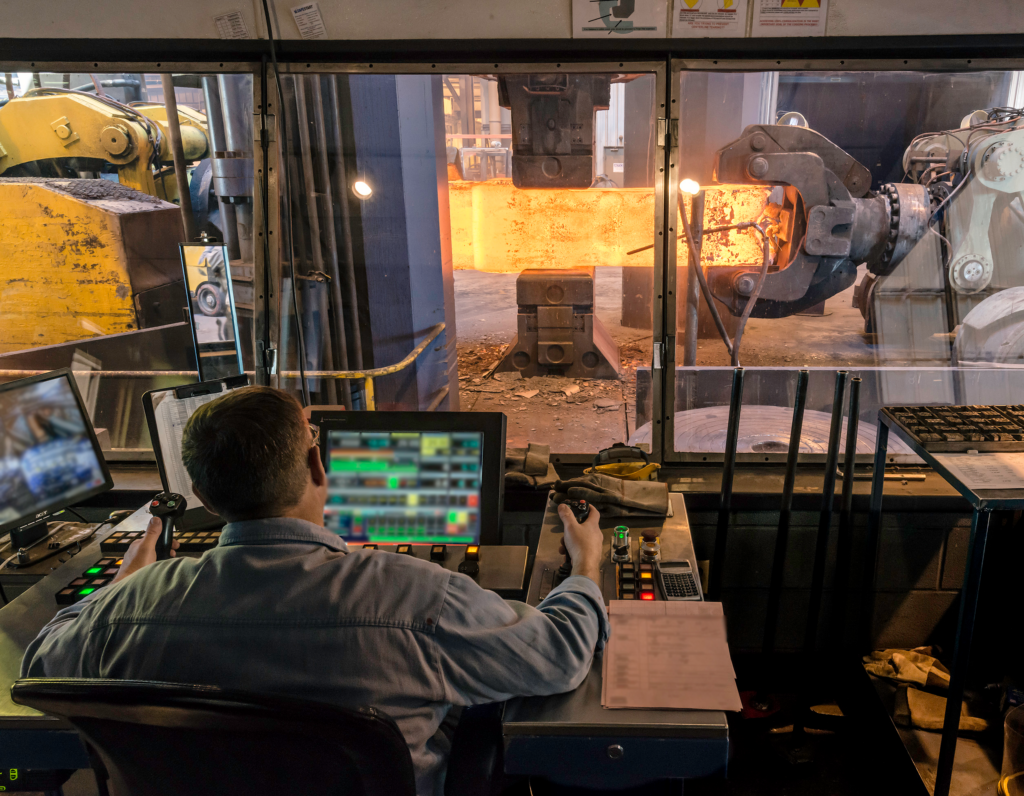
Transforming U.S. Metal Manufacturing Workforce in the Castings and Forging Industry
Workforce shortages in the U.S. casting and forging (C&F) industry, the downstream fabricator and OEM supply chain installing castings and forgings, and the associated government workforce pose a significant risk for the U.S. defense industrial base. Department of Defense (DoD) assets and warfighter support systems depend on U.S. manufacturing capacity, which relies on adequate domestic and allied workforce and materials production.
Between now and 2028, the defense industrial base will need at least 122,000 additional shipbuilders, engineers, and other critical DoD support roles. Failure to meet the demand for metallurgical engineers and related trade professionals in the base metals industry creates a critical vulnerability in U.S. national defense.
The new Metallurgical Engineering Trades Apprenticeship & Learning (METAL) program aims to transform the U.S. metal manufacturing workforce in the castings and forging industry by developing a national training network to sustain and bolster the base metals workforce through 2050. METAL is supported by DoD’s Innovation Capability and Modernization (ICAM) Office within Manufacturing Capability Expansion & Investment Prioritization (MCEIP) in partnership with industry and the Institute for Advanced Composites Manufacturing Innovation (IACMI). The Steering Committee includes representatives from across the services at Naval Sea Systems Command (NAVSEA), the Air Force Life Cycle Management Command (AFLCM), and the Army Combat Capabilities Development Command (DEVCOM).
METAL will leverage IACMI’s proven workforce development capabilities and experience in scaling up technical training networks, including the successful America’s Cutting Edge (ACE) CNC machining training program developed by University of Tennessee Professor Tony Schmitz and proven regional training center models to deliver comprehensive and hands-on, metals industry training.
IACMI will engage world-renowned metallurgical and industry experts and educational institutions to develop a core METAL program curriculum and training methods in early 2024. In its testbed phase, this curriculum will focus on traditional base metal processes, like casting, forging, and plate production. Future program expansions could cover hybrid processes, automation, and consumables.
METAL’s experiential learning pathways aim to include:
- Direct trades programs
- Metallurgical engineering certification and degree programs
- Apprenticeships, internships
- Short-term training modules, including online courses and hands-on bootcamps
IACMI plans to establish the first METAL pilot program and training hub in Pennsylvania, the backbone of the base metals manufacturing industry and a critical center for the nuclear Navy. The hub will welcome its first student cohort in summer 2024 and begin identifying sites for new training hubs in the fall of 2024.
IACMI’s extensive network of industry partners and affiliates will evaluate the curriculum annually to target the needs of the base metals industry, government and shipyard workforce that consumes, qualifies, and certifies metallic products for new construction. IACMI aims to earn full accreditation for the METAL curriculum within three years.
“The materials in our weapons systems affect platform resilience, sustainability, and affordability. Castings and forgings are critical to achieving and maintaining the capabilities we need; however, the supply chain for cast and forge components for the Defense Industrial Base has shrunk by 80%. In a time when we must now produce defense materials at tonnage levels not seen since the Cold War, we must rebuild a modern, technologically adept workforce capable of delivering with far fewer personnel.” — Dr. Matthew Draper, Technical Director of Metallurgy and Manufacturing, Office of the Under Secretary of Defense for Acquisition and Sustainment – Innovation Capability and Modernization Office


